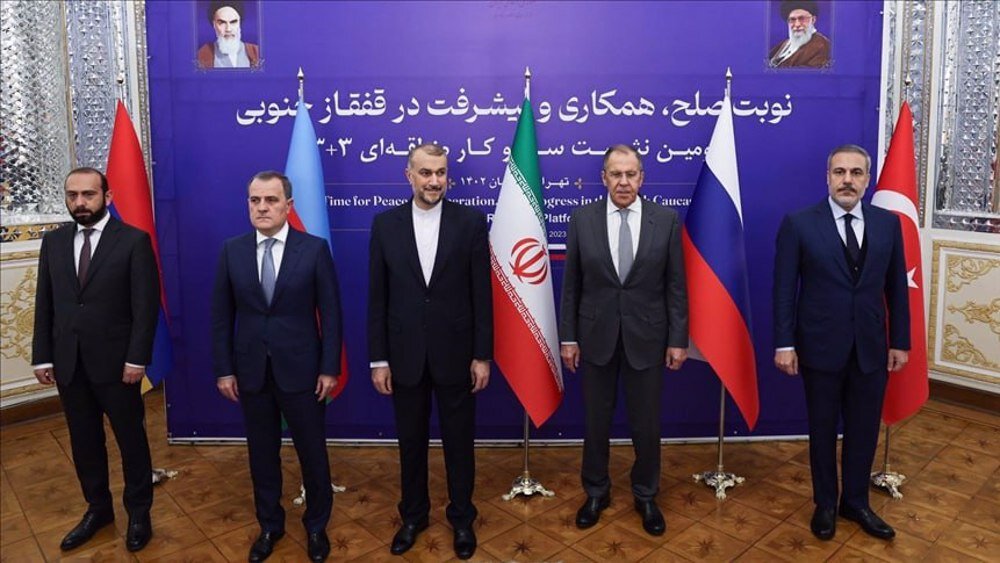‘Iran is anchor of regional stability while US, Israel escalating tension’

TEHRAN- Iran’s Foreign Ministry spokesman, Nasser Kanaani, said on Tuesday that Iran is “the pillar and anchor of stability” in the region in contrast to the United States, which is fomenting conflict in the region by endorsing Israel.
Kanaani cited Tehran’s hosting of the second 3+3 regional platform meeting, dubbed Time for Peace, Cooperation, and Progress in the South Caucasus, as an example of Iran’s efforts towards collective security in the region.
“While the United States and some of its allies are escalating war-mongering, instability and insecurity in the region by lending unswerving support to the villain Zionist regime, Tehran was host to the second meeting of the 3+3 regional platform,” he wrote on his X post.
Kanaani also said, “Iran remains the pillar and anchor of stability and security in the region on the basis of indigenous collective security doctrine.”
He added Tehran does believe that the nations in the region have had the potential to address their issues and guarantee long-term security and stability in accordance with shared goals and cooperative advancement.
“Such a strategy could lead to more benefits and sustainable development for our region only when all our countries pursue a similar approach without the profit-seeking interference of trans-regional players,” he averred.
In an effort to resolve regional disputes free from outside intervention, the three South Caucasus nations of Armenia, Georgia, and Azerbaijan as well as Russia, Turkey, and Iran formed the 3+3 consultative platform.
The first 3+3 meeting was held in Moscow in December 2021 at the level of deputy foreign ministers and without the presence of Georgia.
The second meeting was held on Monday in Tehran, with the participants emphasizing in their final statement “the importance of peaceful settlement of disputes, respect for sovereignty, political independence, territorial integrity, inviolability of internationally recognized borders, non-interference in internal affairs, prohibition on the threat or use of force, and respect for human rights.”
Leave a Comment